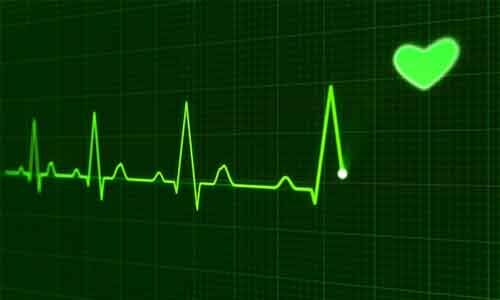- Home
- Medical news & Guidelines
- Anesthesiology
- Cardiology and CTVS
- Critical Care
- Dentistry
- Dermatology
- Diabetes and Endocrinology
- ENT
- Gastroenterology
- Medicine
- Nephrology
- Neurology
- Obstretics-Gynaecology
- Oncology
- Ophthalmology
- Orthopaedics
- Pediatrics-Neonatology
- Psychiatry
- Pulmonology
- Radiology
- Surgery
- Urology
- Laboratory Medicine
- Diet
- Nursing
- Paramedical
- Physiotherapy
- Health news
- Fact Check
- Bone Health Fact Check
- Brain Health Fact Check
- Cancer Related Fact Check
- Child Care Fact Check
- Dental and oral health fact check
- Diabetes and metabolic health fact check
- Diet and Nutrition Fact Check
- Eye and ENT Care Fact Check
- Fitness fact check
- Gut health fact check
- Heart health fact check
- Kidney health fact check
- Medical education fact check
- Men's health fact check
- Respiratory fact check
- Skin and hair care fact check
- Vaccine and Immunization fact check
- Women's health fact check
- AYUSH
- State News
- Andaman and Nicobar Islands
- Andhra Pradesh
- Arunachal Pradesh
- Assam
- Bihar
- Chandigarh
- Chattisgarh
- Dadra and Nagar Haveli
- Daman and Diu
- Delhi
- Goa
- Gujarat
- Haryana
- Himachal Pradesh
- Jammu & Kashmir
- Jharkhand
- Karnataka
- Kerala
- Ladakh
- Lakshadweep
- Madhya Pradesh
- Maharashtra
- Manipur
- Meghalaya
- Mizoram
- Nagaland
- Odisha
- Puducherry
- Punjab
- Rajasthan
- Sikkim
- Tamil Nadu
- Telangana
- Tripura
- Uttar Pradesh
- Uttrakhand
- West Bengal
- Medical Education
- Industry
Landiolol effective remedy for sepsis-related tachyarrhythmias: Lancet

Japan: Tachycardia and atrial fibrillation frequently occur in patients being treated for sepsis or septic shock and have a poor prognosis. Treatments for tachyarrhythmias are often ineffective or contraindicated in such a situation.
Recent research carried out in 54 hospitals in Japan studied that Landiolol resulted in significantly more patients with sepsis-related tachyarrhythmia achieving a heart rate of 60–94 bpm at 24 h and significantly reduced the incidence of new-onset arrhythmia.
The study is published in the Lancet.
Landiolol hydrochloride (landiolol) is an ultra-short-acting beta-1-selective blocker that has been developed in Japan, whose pharmacokinetics and pharmacodynamics profiles are similar to esmolol .
It is approved for emergency treatment of intraoperative and postoperative tachyarrhythmia and is used for supraventricular arrhythmia including atrial fibrillation/flutter (AF) after pulmonary resection for lung cancer treatment . Preventive effect of landiolol for postoperative AF after heart valve surgery and coronary artery bypass grafting have been reported.
The authors conducted a multicentre, open-label, randomized controlled trial among 151 patients who were randomly divided into two groups - 76 to the landiolol group who received conventional sepsis therapy plus landiolol and 75 to the control group who were given only the conventional sepsis therapy. Patients, 20 years of age or older, who subsequently developed a tachyarrhythmia was admitted to the intensive care units for the purpose of the study.
The findings of the research was-
- A significantly larger the proportion of patients in the landiolol group had a heart rate of 60–94 bpm 24 h after randomization than in the control group (55% [41 of 75] vs 33% [25 of 75]), with a between-group difference of 23·1%.
- Adverse effects were observed in 64% of patients in the landiolol group and in 59% in the control group.
- Serious adverse events related to landiolol occurred in five (6%) of 77 patients, including decreased blood pressure in three patients (4%) and cardiac arrest, heart rate decrease, and ejection fraction decrease occurred in one patient each (1%).
The Researchers concluded that Landiolol resulted in significantly more patients with sepsis-related tachyarrhythmia achieving a heart rate of 60–94 bpm at 24 h and significantly reduced the incidence of new-onset arrhythmia. Landiolol was also well tolerated, but it should be used under appropriate monitoring of blood pressure and heart rate owing to the risk of hypotension in patients with sepsis and septic shock.
This study was registered with the Japan Pharmaceutical Information Center Clinical Trials Information database, number JapicCTI-173767.
https://doi.org/10.1016/S2213-2600(20)30037-0
Dr. Nandita Mohan is a practicing pediatric dentist with more than 5 years of clinical work experience. Along with this, she is equally interested in keeping herself up to date about the latest developments in the field of medicine and dentistry which is the driving force for her to be in association with Medical Dialogues. She also has her name attached with many publications; both national and international. She has pursued her BDS from Rajiv Gandhi University of Health Sciences, Bangalore and later went to enter her dream specialty (MDS) in the Department of Pedodontics and Preventive Dentistry from Pt. B.D. Sharma University of Health Sciences. Through all the years of experience, her core interest in learning something new has never stopped. She can be contacted at editorial@medicaldialogues.in. Contact no. 011-43720751
Dr Kamal Kant Kohli-MBBS, DTCD- a chest specialist with more than 30 years of practice and a flair for writing clinical articles, Dr Kamal Kant Kohli joined Medical Dialogues as a Chief Editor of Medical News. Besides writing articles, as an editor, he proofreads and verifies all the medical content published on Medical Dialogues including those coming from journals, studies,medical conferences,guidelines etc. Email: drkohli@medicaldialogues.in. Contact no. 011-43720751


